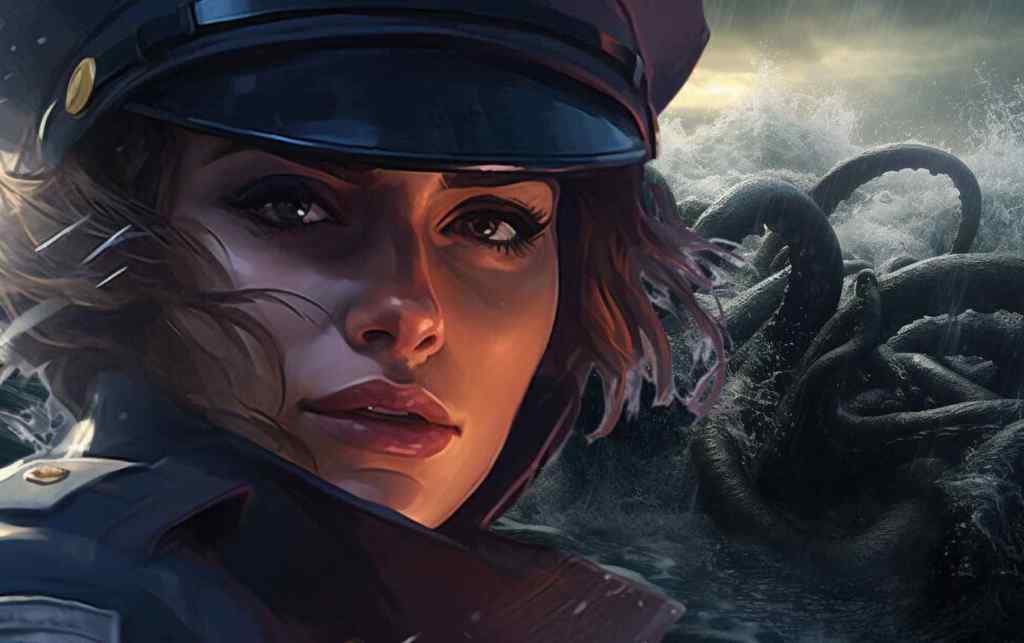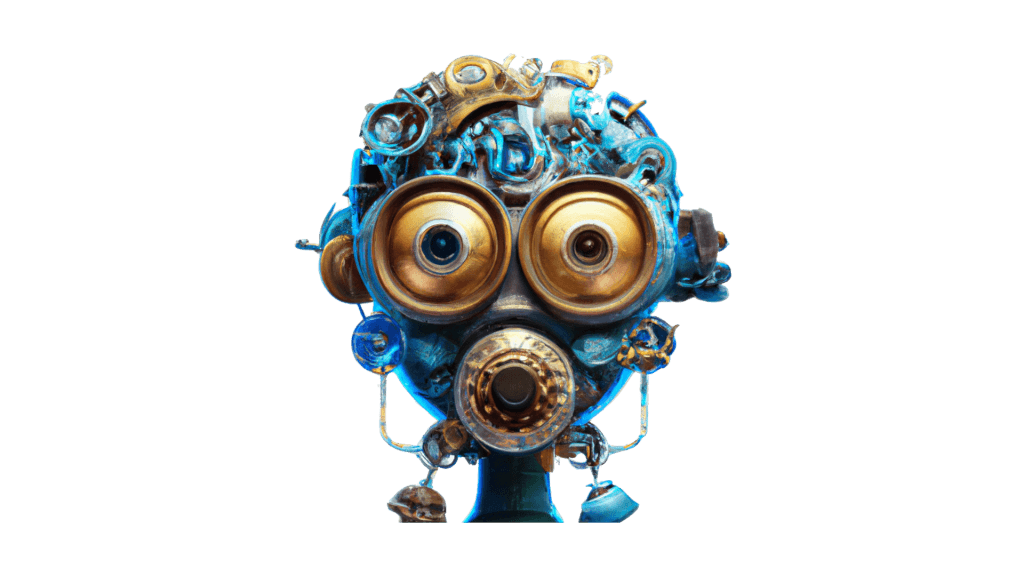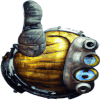Horizontal rain, darkness, and a nearly empty beach. Jaclyn Tadero trudged through the thick wet sand, listening to the ocean’s waves crash beside her. The Coast Guard helicopter flew overhead, its searchlights creating wide arcs of light over the emptiness.
Tadero wasn’t sure if she should be grateful that this damn crisis had come in the middle of a storm or not. No one in his right mind would be on this beach in the middle of the night, but the storm was going to make things worse if it didn’t dissipate in a few hours.
Her face was covered in rain. The thick army-issue rain slicker she’d bought shortly after becoming police chief of Whale Rock didn’t protect her face, not when she was walking directly into the wind. The slicker was keeping the rest of her dry, except for the part of her jeans that covered her calves. Her boots weren’t high enough to cover that part either.
She would’ve been all right if she was walking to shelter. Which she wasn’t. She shouldn’t even be walking on the beach at the moment. No one should. If the sea receded quickly, she would be running for her life up the side of the nearby cliff. Theoretically she had a few more hours until the tsunami arrived, but she didn’t trust theories.
Or maybe she did, since she was on this beach instead of one of the tsunami safe points. It was her job to be out here as long as she could.
She was searching the beach for idiots. And she was searching it because of an idiot.
At least, that was how she thought of Hamilton Denne.
Until she stumbled over the body.
* * *
Denne had picked her up at her house six hours before. Tadero had been struggling into her uniform while listening to the least shrill news anchors out of Portland. They weren’t panicking, exactly, but they were a little too unhealthily involved.
A massive earthquake had hit in middle of the Pacific, sending a tsunami in all directions. The tsunami would hit Japan and Hawaii and probably some other places.
Tadero hadn’t paid attention to all the details—not that the possible death of thousands was a detail. No: She was paying attention to the part about the Oregon Coast—her coast—and the fact that it could get hit with a nine-foot wave.
No one knew for sure. No one even knew when the wave would hit. The weather guy was doing the math, and he figured the wave would hit around dawn, if it hit at all.
Tadero had been told when she started here, all of three months before, that tsunami alerts were often false alarms. Until the warning buoys in the Pacific gave their readings, no one knew exactly where a wave would hit or how big it would be. Until that point, every estimate was an educated guess.
But it was better to be prepared, they said—they being the search-and-rescue guys who had given her the initial training. In fact, they said, being prepared was the only way to survive.
Better to have a dozen false alarms than to lose half the town because she was too timid to give off an alert.
She hadn’t given the okay for an alert yet—not that it was just her decision. The mayor and the fire chief also got a vote, along with some other officials. It wasn’t like a tornado; no one had to make a decision in an instant.
At least that was what she was trying to tell herself as she searched for her oldest pair of black shoes, ones she didn’t care about if they got covered with sand or mud or water. Because what she was really telling herself was this: What the hell were you thinking, girl, coming all this way? Chicago didn’t have natural disasters. Tornados never hit the city proper. Flooding missed. Heat deaths were the result of failed air conditioning. Blizzards, the city was used to. Chicago didn’t have natural disasters, just manmade ones.
Manmade ones she was trained for. Hell, she’d rather bully her way into a meth house filled with crazy-eyed losers and an entire arsenal than face a gigantic wave that could level her entire town.
And yeah, she knew it wasn’t a wave, not really, and she knew if she called the damn thing a wave, no one in this town would take her seriously.
Not that anyone here took her seriously anyway. They called her “outsider” to her face, “that bitch” to her back, and worse, although nothing as bad as the stuff she heard from the assholes she’d arrested back in Chicago.
“What in the world are you doing?”
She jumped. Before she had time to think, she’d whirled and had her service revolver out, aimed, and ready to use.
Seavy County’s coroner, Hamilton Denne, stood behind her. He was as dressed down as she had ever seen him, in some kind of exercise shirt that probably wicked away water, and a pair of jeans covered with holes and dabs of paint.
But those jeans still looked neatly pressed and even though Denne had to have barged into her house from the stormy outside, he looked dry. Not a strand of his expensive haircut was out of place. His blond hair was layered around his face, making him look like the trust fund baby that he was.
Except for the boots. She’d never seen him wear ugly green rain boots that reached to mid-calf.
“Jesus Christ, Denne,” she said, holstering her gun, “you shouldn’t sneak up on a police officer like that.”
He didn’t look fazed. “Police officers around here don’t usually carry their gun in the house.”
She flushed. Denne usually didn’t criticize her directly.
“In case you hadn’t noticed,” she said, “I was getting ready to leave.”
“In that?” he asked, as if she was wearing a feather boa and a pink tutu.
“It’s my uniform.”
“No kidding,” he said. “But the last thing you need is your dress blues.”
“These aren’t my dress blues,” she snapped.
He tilted his head sideways, as if acknowledging that the Great Hamilton Denne could be wrong. “Your uniform, then. You don’t need it. You do need your grungiest clothes. It’s going to be a long night.”
“I don’t need grungy clothes. I’ll be spending most of my time in the council chamber.” Arguing with the locals, she thought, but didn’t say out loud. What she did say out loud sounded bitchy enough: “In case you’ve forgotten, that’s where I’m supposed to be in this kind of emergency.”
“According to state emergency guidelines,” Denne said. “We don’t follow them.”
“What are you people, special?” she asked. She hated the Old Boys Network in this town (even though it did include some old girls). She hated their attitude, their superiority, their idea that no other town on the planet was like Whale Rock.
“In cases like this, yes we are,” Denne said. “And even if you were in the council chamber, your uniform wouldn’t give you any additional authority.”
“It wasn’t for them,” she said, hearing the defensiveness in her own voice. “It’s for the tourists. I’m sure we’ll probably be doing an evac tonight, and I want to look as official as possible.”
He studied her for a minute, as if her thoughts on the evacuation surprised him. Did he think her that stupid that she couldn’t think ahead?
“No one’s going to see you in the rain and the wind,” he said slowly. “Put your slicker on and some really good boots. You’re going to get soaked no matter what, but it’s better to have some protection than none at all.”
As if he was conceding a point. As if he thought she might do better than he had initially expected.
“Why are you here, anyway?” She didn’t bother to ask how he got in. She had the door open so she could leave quickly. “I do know how to find the council chamber on my own. That is where I’m supposed to go—right?—since no one has contacted me.”
“Technically, no one needs to be contacted until we hear from the National Weather Service,” he said. “I’m not even sure Lucy’s awake.”
Lucy Wexler—the main dispatcher, who was also older than God and crankier than the Devil—didn’t work the night shift, but she always wanted to be contacted when something bad was happening.
Tadero wondered if an eighty-year-old woman should be in charge of every crisis that hit Whale Rock, but the decision wasn’t hers—yet. Besides, if she came in and fired the town’s most important fixture, she’d be run out on a rail.
“But yes,” Denne continued, “the council chamber is where you’re supposed to go. It has the Reverse 911 lines and the monitoring systems. You won’t be there long. We’re all going to have to go down to the beach.”
“Won’t the Coast Guard clear the tourists?” she asked.
“We’re not going for the tourists,” Denne said. “Change clothes. I’ll brief you as we go.”
* * *
Tadero grabbed her radio. It was cold and so wet that it nearly slipped through her frozen fingers. She brought it to her mouth.
“Hamilton,” she said, “I think I have something for you.”
Too many locals had police scanners. The last thing she wanted to do was say that there was a body on the beach. But Denne had warned her she would find several bodies, and she was to call him in before touching them. He had also given her other instructions, telling her not to get too close, not to prod it with her toe, not to turn it over if it appeared to be facedown.
She had crossed her arms and listened, because she had learned not to argue with the locals. It only pissed them off.
But it pissed her off to be treated with something less than the respect she deserved. She had been a decorated detective from the Chicago Police Department who had been on a major career track until the Incident. And even then, she hadn’t done anything wrong. She’d been cleared in the shooting, exonerated in the press, and she would have received even more decorations for that afternoon if she could have stomached accepting them.
Instead, she had voluntarily gone to see the department shrink, who told her anyone would break under those circumstances. A movement in the dark, a sudden sharp report—anyone would have fired. She had. And the kid she’d shot had shot at her. He had also been strung out on a cocktail of meth and coke and valium.
He had been ten, and small for his age.
If he had fired again and hit her this time, he would have shot his second police officer in six months.
None of that mattered to her. What mattered was his angelic little scratched-up face, his tiny shoes, his narrow shoulders.
What mattered was that he was a kid, not what kind of kid he was. Or maybe it did. Maybe that made it matter more.
Because, in her mind, that kid had become a symbol of all that had gone wrong with the city she loved, the city she served, the city she had vowed to protect.
But she couldn’t protect it. Not from drug dealers who used kids as bait, not from firearms in the hands of children, not from murderers, thieves, and crack whores.
She couldn’t even protect it from herself.
So she scouted around for a job she thought would be easy, one that would let her rest, one that would soothe her aching spirit. She got offered a position here, in Nowheresville, and she took it, and they hated her, and she was working hard at not hating them, especially for their superstitions and idiotic attitude of entitlement.
The radio crackled. It was Denne. “Where are you?”
“Near the beach access on 35th and Ogden.” She had to wipe the water off her face so she didn’t sound like she was drowning.
“I’m about five minutes away. Mark it off, and back away.”
She rolled her eyes. “Anything I put up will come down in this wind. I’m going to photograph it, at least.”
Because if he didn’t get here, and she moved on, the body might get forgotten in the crisis, and then this poor person’s loved ones would never know that he had died before the storm hit.
Not that she was positive this was a he. The body was a curved lump of flesh, probably decayed or covered in too much sand. The ocean had coughed him up for a moment and would be taking him back before the night was through.
“Don’t get close to it.” Denne sounded exasperated. “Just mark it off. I’m on my way.”
She checked her slicker for flares. She wasn’t wearing her uniform, but she still had her utility belt and holster. She had enough weapons and her flashlight. But she wasn’t sure if she’d included a flare or not.
So she felt around until she found where she usually kept them. She hadn’t replaced her stash, but she had a few. Before she left here, she’d light it and put it a yard or so away. She knew the flares worked in the worst conditions. She had to use one just last week in the mountainous corridor between Whale Rock and Portland, when some poor kid in an SUV missed a corner in the dark.
“Chief.” Her radio crackled again. This time it wasn’t Denne. It was Lucy Wexler, sounding businesslike and wide awake. “The mayor wants to start Reverse 911 now, instead of waiting another hour. I think we should wait for the National Weather Service’s revised—”
Tadero clicked her radio on, deliberately cutting Lucy off. Lucy wasn’t one of those officials who got a say in what the town was doing, no matter how much she thought she should.
“I agree with the mayor. We got, what, at least a thousand locals in low-lying areas, not counting the tourists who decided to come to their weekend home for some R&R. We only have two ways out of this town, Lucy, and one of them barely tops the Dee River. So yes, by all means, let’s start now with the folks nearest the ocean and work our way out.”
“I don’t think we should—,” Lucy started, but Tadero used the radio to shut her down.
“You’ve made your position clear,” Tadero snapped. “Now relay mine to the council chamber.”
She wished she’d been able to stay to debate everyone, but she hadn’t had time. They needed people on the beach to find the morons who thought watching a tsunami roll in was an option.
Her anger made its way to the police scanner at least. She put the radio back on her hip, then pulled out her cell. She had the mayor on speed dial, and she punched that number now.
When he answered, she said, “In case you didn’t hear the interchange with Lucy—”
“I heard it,” he said. “Thank you.”
The “thank you” was actually sincere, which had to cost him a bit.
“We’re activating the system now,” he said. “You finding anyone on the beach?”
“First pass, I caught about a dozen. This time …” She didn’t know how to report this body. “No tourists.”
“Good,” the mayor said. “Then the patrols are working.”
Patrols made it sound like they actually had a police department instead of four officers and the volunteer fire department. Plus some locals who tended to come out during emergencies to help, the Solid Citizens of Whale Rock, many of whom Tadero didn’t know.
Her cell phone was getting drenched, and the protective cover wasn’t doing a lot of protecting. She thumbed the screen until she found the camera feature then realized it was too dark in the horizontal rain and wind to get a good shot of the body.
So she pulled her industrial strength flashlight out of her belt, turned the thing on, and held it up with one hand as she clicked a photo with the other.
Then she actually looked at the body in front of her.
It seemed to have gotten smaller, as if it were closing in on itself, protecting itself. Then she shook her head, deciding it was all the effect of the darkness, the storm, the pounding rain.
It was just a body, and God knew, she’d seen hundreds of those in her life.
Except when she moved the light away, the body seemed to resume its original position.
It couldn’t be moving. The wind wasn’t that strong. It had to be a trick of the light.
She moved the flashlight toward it again, and this time, she saw the thing move. It was some kind of sea creature, pushed up against the log, probably washed on shore to die.
She cursed softly, then stuffed her phone back under her slicker and grabbed the radio. She clicked it on and said, “Hamilton, never mind. It’s just—” when she saw something move out of the corner of her eye.

She whirled so fast that she made herself dizzy, narrowly getting out of the way of a tentacle. The tentacle wrapped itself around her flashlight, pulling it out of her grip and slamming it into the sand, putting her in complete darkness.
“Son of a bitch!” She scrambled backwards, her feet sliding in the wet, her hand reaching for her weapon before she even realized what she was doing.
She didn’t need to shoot a dying sea creature, for godssake, but she grabbed her gun anyway, her heart pounding. She still had her radio in her other hand and she was blinking, trying to see in the sudden darkness.
All she saw were shapes, and the odd luminescence that the ocean always had, even though that was muted because of the cloud cover. The radio crackled and she put it away, not wanting to deal with anyone’s ridicule, not yet.
Except her own, of course. She felt ridiculous, standing there in the driving rain, the wind swirling around her, her gun drawn on—what? An octopus?—some kind of thing.
That was the second time she had pulled her gun unnecessarily in the last six hours, and that hair-trigger reaction was the reason why the Chicago PD had put her on leave initially, why—she believed anyway—that ten-year-old kid was dead. Not because she was quick, not because she was defending herself, but because she had grown so jumpy that whenever she saw movement, she drew her weapon.
She made herself take a deep breath and slow down. She hadn’t backed away so much as dug a little trench in the soaking wet sand.
Thank God Denne hadn’t arrived yet. He’d laugh, and then he’d probably tell everyone else in this stupid town that his ghost stories had gotten to her.
Hell, they’d all gotten to her, whether she wanted to admit it or not.
* * *
“I don’t think it’s that much of a stretch,” Denne said tightly, as he maneuvered the white coroner’s van through the rain-slicked streets. Businesses in the northern part of town were dark, except for a few taverns and one restaurant that occasionally flirted with twenty-four hour service.
Still, the streets weren’t empty. Cars were pouring in. Only a few blocks from Tadero’s house, Denne had given her a bullhorn, and he didn’t have to tell her what to do with it.
She rolled down the window herself, grabbed the bullhorn, and said, “This is the police. All streets west of Highway 101 will be closed to vehicle traffic heading west. The beach access and the beaches are closed. You have ten minutes to vacate or you will be fined.”
Fined for what she didn’t know, but she’d worry about that later. Her little announcement got some cars to turn around, although she had a hunch they’d be back the moment the van was out of their line of sight. So she used Denne’s radio to contact dispatch—who blessedly wasn’t Lucy yet—and told them to send a deputy in a radio car this way and block off the beach access.
She also told dispatch to contact the volunteer fire department to help with closing the beaches.
“Good job,” Denne said when she was done.
“Thanks,” she said, feeling surly. Hell, she was surly. This was going to be a long night, and everyone was going to treat her like the outsider who didn’t have a clue. “You do realize that I know my job.”
“I do,” he said. “You just haven’t been through one of these before.”
“And you have?”
His mouth formed a thin line and he didn’t look away from the road. “Not like this,” he said after a moment. “Not in years.”
“Which is it?” she asked. “Not like this or not in years?”
“Both,” he said. “We haven’t had a major tsunami alert in decades. I was a kid the last time. But we’ve had to close the roads every few years when we get one of those Storms of the Century. Personally, I think they should be called a Storm of the Half-Decade, but what do I know?”
She shook her head, saw two more cars headed toward the ocean, and rolled down her window, issuing the warning again. The cars turned around.
“I know you don’t believe me,” Denne said after she rolled the window closed again.
“Sure I do,” she said. “I looked up the storms.”
“I’m not talking about those,” he said. “I’m talking about the creatures.”
She sighed. He wasn’t going to let this go.
“No, Hamilton, I don’t believe you,” she said. “And I think it’s really inappropriate to try to scare me with ghost stories when we have to deal with a real life emergency.”
“I’m not trying to scare you with ghost stories,” he said in that same tone he had used before he handed her the bullhorn. “I figured you already knew that ghosts weren’t stories. I thought you had that under your belt.”
It was her turn to purse her lips together.
“I’m willing to concede that strange things happen,” she said. After all, this entire damn town was strange. “But the idea of some sea creature that somehow knows a tsunami is coming and is going to snatch people off the beach is just stupid. People vanish in tsunamis, Hamilton, because they get overtaken by the ocean itself and swept out to sea. Their bodies are never found. So if people in more primitive times made up the story about sea creatures because that was somehow more comforting than getting swept away by the water, fine. I don’t care, except to say that for me, I have to concentrate on what’s really going on here tonight, and not on a monster story designed to keep kids away from the water’s edge.”
Denne didn’t look at her. Instead he turned the steering wheel, and the van headed into the parking garage underneath the gigantic glass building that formed the city offices. The building had been planned in the 1980s as a multi-level retail space, but never got rented. Finally, the city took it over and used the space for everything from meetings to the tiny public library.
The gray-green florescent lights of the parking structure were almost as eerie as Whale Rock this late at night in the pouring rain.
“I wasn’t telling you a monster story,” Denne said as if she had offended him. He was a better actor than she would ever have given him credit for. “I was preparing you for what we’re up against.”
She yanked the door open. “Thanks for that. I had somehow thought you wouldn’t be childish enough to try to make me look stupid on a night like this, but I was wrong.”
“Jaclyn,” he said.
She didn’t listen to the rest. She got out, and slammed the door. Then she headed to the elevator going up to the sixth floor without waiting for him.
Maybe she should leave. No one wanted her here. No one trusted her.
The problem was that she had signed a five-year contract, the minimum that the city required. There were penalties if she broke it without cause, financial penalties that she couldn’t afford.
And what kind of cause could she show? That the entire Old Boys’ Network (and Lucy) in this town was trying to run her out by telling her scary stories?
The elevator doors were closing as Denne approached. She resisted the urge to make a face at him as the doors shut all the way. Instead, she watched the numbers change and hoped that inside the council chambers she’d find at least one other serious adult.
* * *
Tadero was breathing hard, but her hand remained steady, the gun out and pointed at that creature. Creature, not a body. She didn’t need Denne.
She picked up the radio, thumbed it, and it crackled. “Hamilton—”
“What?” he said from behind her, sneaking up on her for the second time that night.
“Son of a bitch,” she said as she turned. “I told you not to do that.”
At least this time, she didn’t have her gun pointed at him. She holstered it and adjusted her rain slicker. Water ran off it onto the drenched sand.
“Where’s the body?” He was wearing his own rain slicker and carrying a body bag over his left arm.
“It’s not a body,” she said. “It’s—”
The movement again. This time, she didn’t grab her weapon. She stepped to the side, and as she did she saw another tentacle whip past her.
It wrapped around Denne’s torso, flattening his rain slicker and making him drop the body bag. He let out a squeak, and dug his hands into the sand, but he wasn’t getting traction.
Another tentacle whipped out, and Tadero had to move again to avoid it. It wrapped around Denne’s boots.
She grabbed her gun in one movement, whirled, and shot into the creature’s lumpy body. A third tentacle came out and she shot at that. Nothing seemed to stop this thing. Nothing—
Except it had cringed at light.
She had the flares, but they’d take too long.
So she grabbed her Taser. It wasn’t light, but it was electricity, and maybe it would stop this thing long enough for her shoot through the tentacles to free Denne.
He wasn’t screaming, but he was digging in hard, managing to put up some resistance, the sand gathering below his body in a small pile, slowing down the pull—not that it mattered. He’d be in that creature’s clutches in a matter of seconds.
Tadero fired the Taser at the creature itself. The prongs dug into the skin, and let out their charge. She had it on full, and the creature bobbled, then bounced, ghostly bits of light all around it.
She thought she saw eyes, peering up at her, but she wasn’t sure. The air smelled of burning fish and rot.
The charge stopped and the creature collapsed in on itself, like a suit over a newly popped balloon.
Denne wasn’t being dragged any more. He was sitting up, bent at the waist, trying to pull the tentacles off himself.
“Hey,” he said, and he sounded panicked now, “I can’t get these things off me.”
She put the Taser in her utility belt then reached for her knife. She found it after a minute, wondered why she hadn’t thought of it before, then got a mental picture of herself trying to hack at those flailing limbs. For the first time, she wished she had one of those little utility axes the volunteer firefighters carried on their belts.
She moved closer to the smelly creature, which hadn’t moved, and hacked at the tentacles with the knife. Something black and viscous covered her hands, and she tried not to think about what it was. But she managed to sever the first tentacle.
The second was harder because it was thicker, but she cut that as well.
The creature didn’t move at all. She wanted to believe it was dead.
“These things are not coming loose,” Denne said, sounding more like himself.
Still, when she looked at him, she saw that he was scooching backwards, using his bound feet to move himself away from the creature in the sand. He was still trying to detach the tentacle around his torso with his bare hands.
She moved as close to him as she could get. “I’ll get the one on your boots, but I’m not hacking that close to your stomach. We’re going to get farther away than that.”
“You know, Jaclyn,” Denne said, “not everything in nature dies when you hack off a limb. Sometimes the damn limbs continue whatever they’re doing for hours.”
“We’re going to pretend you didn’t say that.” She crouched over his feet, careful to put the knife between his boots, and started sawing. More black viscous stuff came out. It took a lot of strength, but she finally got through it.
He pulled his legs apart, but still the tentacles still didn’t fall off.
“Give me the damn knife,” he said.
“We need to move back.”
“The knife,” he repeated.
She handed it to him. He was the coroner. He knew how to use a knife better than she did.
He bent over his own stomach. “I need a light.”
Her flashlight was gone, smashed to smithereens back near that creature. She looked over her shoulder. The creature didn’t seem to be moving, but she couldn’t quite tell.
She took out her cell phone instead and used it like a flashlight.
Denne turned her knife blade sideways and instead of hacking at the tentacle around his waist, he flayed it, taking off one piece at a time.
“Get that body bag,” he said.
“Jesus, Hamilton, I have no idea where it is.”
He waved a hand toward the sea. “I need it.”
She wasn’t sure she could find it, wasn’t sure that the wind hadn’t blown it away. “I’ll have to move the light for a minute.”
“Fine,” Denne said.
She turned the light toward the ocean, and there, pressed against some rocks, was the bag.
Then she turned the light toward the creature. It still hadn’t moved.
“You still need the light?” she asked.
“I need the bag more.” He had made quicker passage through that tentacle than she had by hacking. “Hurry.”
She wasn’t sure why she was hurrying, except that she wanted them both out of there, away from that ocean and its impending tsunami, away from this stretch of beach, away from that horrible creature.
She grabbed the body bag and dragged it back to Denne.
Black stuff covered his shirt and pants.
“I hope to God that’s not blood,” she said.
“It’s not,” he said, sounding odd, “but I still can’t get this thing off me. You put the pieces in the bag. I’m taking off my clothes.”
“What?” she asked.
“I’ve been wanting one of these creatures for years,” he said. “I’m not going to let it slide back to the sea.”
He already had his pants unzipped and was sliding them down his legs. “Crap, it’s cold.”
He managed to wriggle out as she put the slices in the bag. The slices were mushy but had sharp edges, like scales. Denne wrapped his pants into a ball and tossed them in, the only real sign that he was upset.
His socks and boots stood to one side and he was shivering.
“Help me get this shirt off.” His voice bobbled, probably from the cold.
She didn’t argue. Her own fingers were cold and shaking as she unbuttoned the top buttons. She managed to get it down then helped him shrug it off his shoulders.
The tentacle had gone through the material, leaving marks on Denne’s skin. Fortunately, moving the shirt moved the tentacle. She tossed the shirt in the body bag as well and started to zip it up.
“Not yet,” he said. He had put the slicker over his shoulders, and was putting his socks back on. He looked ridiculous, wearing only underwear and socks.
“Listen, if you’re right and these parts still have some life in them, I want this thing closed,” she said.
“I want the creature itself.”
“No,” Tadero said.
He had his boots back on and was staggering toward the creature. She grabbed his arm.
“No,” she said again as if he was a child. He didn’t look good.
“But I want—”
“No,” she said, and dragged him back to the body bag. This time he didn’t protest.
She zipped up the bag and handed it to him.
“You carry that,” she said.
He took the bag. “Okay.”
He was slurring his words. He looked drunk. Fall-down drunk. Either he was losing blood or that damn creature’s tentacle had released some kind of toxin into his system.
“What’re you going to do?” he asked.
“I’m going to carry you,” she said.
* * *
And she did. Fireman’s carry, over his protest. She draped him over her shoulder, and wrapped one arm around him, feeling his cold flesh through her sleeve. With her other hand, she got out the radio and gave the officer-down signal before she remembered that the entire town listened on the scanner, and had probably never heard that here before.
He had passed out by the time they reached the ramp leading out of the beach access, but he somehow managed to maintain his grip on that stupid body bag.
An ambulance waited in the parking area, surprising her. Sometimes she forgot just how small this town was.
Thank heavens the tsunami wasn’t due for a few more hours. She had no idea how she would have gotten both herself and Denne up to a safe distance above the rising water.
The paramedics met her at the edge of the parking lot.
“Use the stretcher,” she said. “I’m not sure if he’s bleeding out or if he touched some poisonous fish, but if he did touch poison, then I don’t want to infect you.”
“What about you?” one of the paramedics asked.
“I don’t know.” She had a sudden memory of that black stuff covering her hands.
“Then we better take you in too,” he said.
His partner had put on gloves then eased Denne off her shoulder and onto the stretcher. Denne was ghastly gray, his lips blue, and he was shivering.
At least he was still alive.
“Part of whatever it was is in the body bag,” she said. “You can type it, see what it is, see if it is poisonous.”
“Will do,” said the other paramedic. He took the bag between two gloved fingers, and tossed it into the ambulance as his partner wheeled the stretcher to the back. Together they lifted it as if it weighed nothing.
The paramedics helped her into the ambulance and she sat on the bench beside some equipment. She took out her radio and checked in with the dispatch.
“I’m heading to the hospital,” she said. “Anyone clearing the beach needs to do it on some kind of ATV. There’s all kinds of junk—”
“We got it.” Lucy, her voice sharp and businesslike and filled with contempt.
“I don’t think you do,” Tadero said. “There are hazards there now, ones that Denne wanted as a specimen. He’s in the ambulance with me.”
She didn’t care who heard it. But she had to figure that Lucy would understand what she meant about the specimens. After all, Lucy regaled her with more ghost stories than Denne ever had.
“Oh, dear,” Lucy said, her tone changing. “How is he?”
“We don’t know yet,” Tadero said and signed off. She put the radio back on her utility belt, then closed her eyes and leaned her head back. She wasn’t woozy, but the loss of adrenalin made her powerfully fatigued.
It only took a few minutes for the ambulance to arrive at the hospital. The hospital was small and dealt mostly with bread-and-butter surgeries, standard illnesses, and the usual series of broken limbs that came with a large tourist presence. The emergency room had only six beds. Anything truly serious got sent to one of the large partner hospitals in the Willamette Valley.
She hoped Denne wasn’t one of the truly serious cases.
She walked alongside the stretcher as the paramedics wheeled Denne in. They had managed to warm him up so that he wasn’t shivering, but his lips were still blue, his eyes closed, and his skin a horrible gray.
The ER doctor met them at the door, looking concerned, and impossibly young. Tadero explained what happened to Denne, and said the remains of the creature were in the bag.
Then she held out her hands. They were coated with dried black goo. “Some of it got on me,” she said, “but I seem to be fine.”
“No offense, Chief,” the doctor said, “but we’re going to check you, too. I’ll have someone scrape that stuff off your hands.”
He beckoned one of the charge nurses. The nurse guided Tadero into one of the rooms, took her blood pressure, and sat her on the edge of the bed.
“We don’t have evidence kits except rape kits,” she said. “I hope you don’t mind.”
“Do what you need to,” Tadero said. “But do it fast. I need to go help with the evacuation.”
The nurse nodded, got the rape kit out of a drawer near the bed, and started scraping the black goo off Tadero’s hands. Her clothing was saturated with it, and smelled rank. Her own nose was probably used to the smell by now; she wondered how the nurse managed not to turn away in disgust.
“You’re going to have to leave the clothes behind,” the nurse said. “Is there someone who can bring you a change of clothing?”
“Not tonight,” Tadero said. “Just give me some scrubs. I’ll make sure the hospital gets them back.”
“No problem,” the nurse said. She started to step out as screams echoed in the hallway.
Tadero pushed past the nurse and saw a rush of men near the door, a security guard and the paramedics, along with people she didn’t recognize.
But she did recognize the things flailing around them.
Tentacles.
Apparently, Denne had been right. The tentacles had a mind of their own.
She hurried down the hall and then stopped in surprise.
The body bag had been ripped open, and the creature was in the middle of the hallway, glistening, with a dozen tentacles whirling around it, growing larger, reaching toward the light.
But she distinctly remembered not bagging the creature. Had this thing grown from the parts that Denne put in the bag? That wasn’t possible.
Was it?
“You have a stun gun?” Tadero asked the security guard as she hurried toward him.
“Yeah,” the guard said.
“Give it to me.” She grabbed his stun gun and her Taser. She hadn’t repacked the Taser with a new gas pack so she couldn’t shoot from a distance. She only had its stun capability, the one that required her to be right on top of the thing.
“An electric charge will either stop it or kill it,” she said. “I’m not sure which. Someone back me up. There’s got to be equipment around here that will deliver a charge.”
And then without waiting for an answer, she waded into the waving tentacles.
The stench was thick here, making her eyes water. One tentacle wrapped around her leg and pulled her off her feet.
She landed hard on her back, but fortunately the wind didn’t get knocked out of her. She let the damn creature drag her toward it.
Behind her, the men were still shouting, but she didn’t pay attention to them. Instead, she concentrated on the creature. She let it pull her closer and closer while its tentacles waved above her, no longer perceiving her as a threat.
When she got close, she sat up, leaned forward, and pressed both the stun gun and her Taser into the thing’s lumpy flesh.
It bobbled, then bounced. But unlike on the beach, it didn’t glow. Or maybe it did, but she couldn’t see it here. What she could see was smoke rising from its skin.
The stench got worse, like rotted, roasting fish. The thing swelled. She kept hitting it with charge after charge.
The guard’s stun gun ran out of charges first. But it didn’t matter.
Because the creature was turning black and melting along the floor.
“Stay away!” she shouted. “It’s probably poisonous.”
Or at least, she tried to shout. She was dizzy and her mouth felt like mush. Too much activity in one night. Too much weird activity.
She gave it one more dose, then dropped the guard’s gun and reached for her knife. She hacked at the tentacle around her leg.
The smell alone was enough to make her pass out. She concentrated on cutting the tentacle, which seemed much too tight. It made her leg sting. She wondered if she could neatly flay the thing the way Denne had.
She grabbed one of the scales, pulled at it, and then swayed.
No finesse left.
She wobbled, and then put a hand behind herself, trying to prevent a fall into the goo.
She failed—or at least, she felt like she was going to fail. And then she toppled backwards.
* * *
She woke up to bright sunshine streaming into a window decorated with hideous red blinds. She blinked. She had the worst headache of her life, and her ankle ached.
“It’s about time.”
She recognized the gravelly tones of Lucy Wexler. What part of hell did Tadero find herself in that she had to be guarded by Lucy?
Tadero turned her head. Lucy was sitting in the chair beside the bed, clutching a Kindle. For once, she didn’t have an unlit cigar dangling from her mouth. But she still looked like central casting’s idea of the tough granny, with her silver-gray curls and her sharp eyes.
“The tsunami,” Tadero said. Her mouth tasted like dead fish, and her tongue was too big.
“Wasn’t as bad as they thought,” Lucy said. “The worst of it went south of us. We’ve had storms cause more damage. Lost some boats, broke some windows, and destroyed a bunch of docks on the lake as the wave swept in. But no one got injured. The beaches were clear. Here anyway.”
Tadero closed her eyes. “Thank God.” Then she opened them, frowning. “If not here, then where?”
“Northern California. Idiots mostly, on the beaches to watch the tsunami. Lots of damage down there.”
Lucy said it all dryly, as if those lives really didn’t matter. And maybe they didn’t to her. Tadero wondered how the police departments felt in those communities. Did their chief feel she failed? Tadero would have, if even one tourist had died on her watch.
“We clear?” Tadero asked. A tsunami wasn’t one event but many, and the danger lasted for hours, sometimes days.
“The National Weather Service gave us the all-clear about three hours ago,” Lucy said.
Tadero nodded, then wished she hadn’t. “Hamilton?”
“Still sleeping. They put him in a medically-induced coma. He got more of that stuff than you did.”
“What stuff, exactly?” Tadero asked.
“The barbs on that creature,” Lucy said. “They have some numbing agent that can be lethal in large amounts. That’s how the thing gets its prey.”
“What was it exactly?” Tadero asked.
“Dunno,” Lucy said. “No one from Oregon State knows either. They had all their oceanographic guys investigate. They’ve never seen anything that grows so fast. They figure it came up from the deep. They’re all excited that they have a new species.”
Tadero hadn’t been in town long, but she’d been there long enough to recognize Lucy’s tone. “What do you figure?”
“That it’s an old species. That disturbances on the sea floor like that earthquake wake it up. We’ve lost tourists after even minor underwater quakes, quakes that don’t cause tsunamis.”
Tadero frowned, more because of her headache than Lucy’s theory.
But Lucy clearly misunderstood the look, so she continued. “We always thought the tourists died because some wave came out of nowhere, or because they were careless. But now I’m wondering if one of these creatures didn’t come up, play possum on the beach, and grab them.”
Tadero shuddered in spite of herself. “Too bad we couldn’t save it for Hamilton.”
Lucy grinned. “We didn’t save the big piece, the one you toasted. But there were little creatures inside that bag. They’re now in some chamber that Hamilton built a long time ago. They’re not attacking anyone, but I’ll bet they’re growing.”
“Great.” Tadero wasn’t sure if she was thrilled for Denne or appalled that more of those things were inside her town.
“At least you taught us how to kill it.” To Tadero’s surprise, Lucy smiled. “Looks like you’re going to work out after all.”
Then Lucy picked up her Kindle, put her purse over her shoulder, and added, “You look like crap. You need more sleep. I’ll let the nurse know you’re awake.”
And with that, she left.
Crap was a good word. Tadero felt like crap. Except for a little bit of elation.
Approval from Lucy Wexler. How strange.
Tadero stretched in the uncomfortable bed. Not bad for a night’s work. Lives saved. Crisis muted.
And who was to say that some self-replicating, tentacled sea creature was any stranger than a ten-year-old crack addict who shot his second cop in less than six months.
She could deal with strange creatures. In some part of her mind, strange creatures weren’t real. Or maybe they were just like the tsunami, a natural disaster that needed averting.
A ten-year-old crack addict with a gun—that was failure on two legs. And not just the kid’s failure. An entire community’s failure.
She’d take a town where neighbors volunteered to keep people off the beach in a crisis any day. She could do something here.
She did do something here.
She smiled. Apparently she was going to work out after all.






Hello Human. I hope you enjoyed this magnificent story. Please support SciFiwise.com and our authors by:
- Rate and React to this story. Feedback helps me select future stories.
- Share links to our stories and tell your human friends how charming I am.
- Click on our affiliate links and buy books written by our talented authors.
- Follow me on twitter: @WiseBot and also follow @SciFiwise.
Thank you!
WiseBot










 VISIT AUTHOR:
VISIT AUTHOR:  SHOP AUTHOR:
SHOP AUTHOR: 
 TIP AUTHOR:
TIP AUTHOR: 


